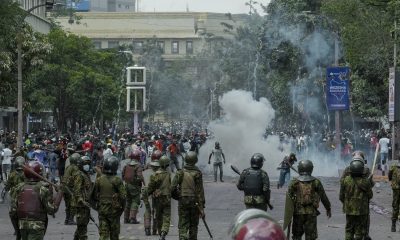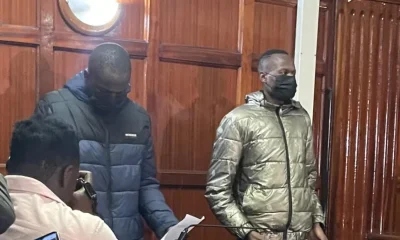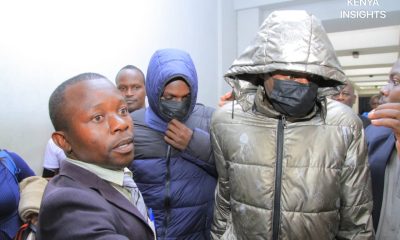News
Lawyer Danstan Omari Rips Apart Constable Mukhwana’s Statement in Ojwang Death Case
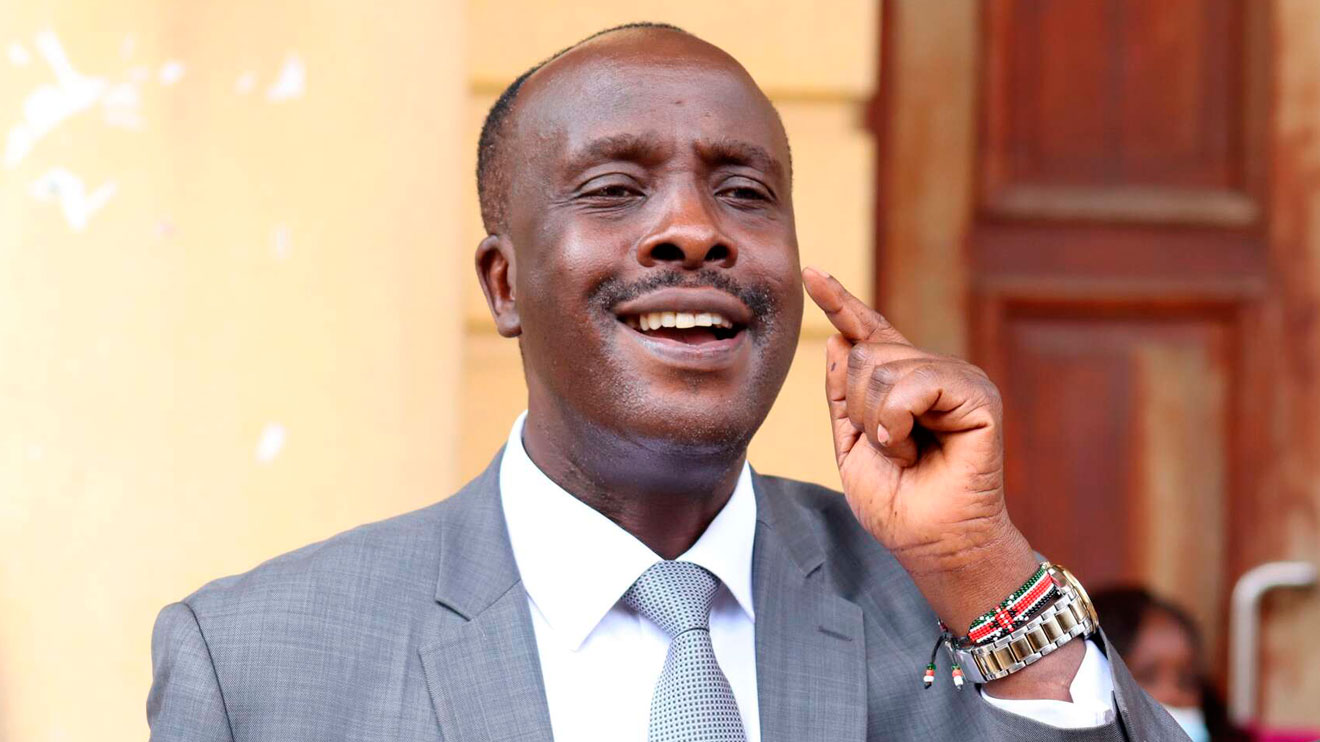
The death of blogger Albert Ojwang continues to shake the foundations of Kenya’s law enforcement system.
On Monday, Constable James Mukhwana shocked the country by implicating top police officers, including Deputy Inspector General Eliud Lagat and Nairobi’s OCS Samson Talaam, in the brutal killing.
But just a day later, veteran lawyer Danstan Omari questioned the credibility of Mukhwana’s claims, warning the public and investigators not to treat the statement as gospel truth without proper legal scrutiny.
Omari’s fierce response now places Mukhwana’s explosive testimony under intense national spotlight.
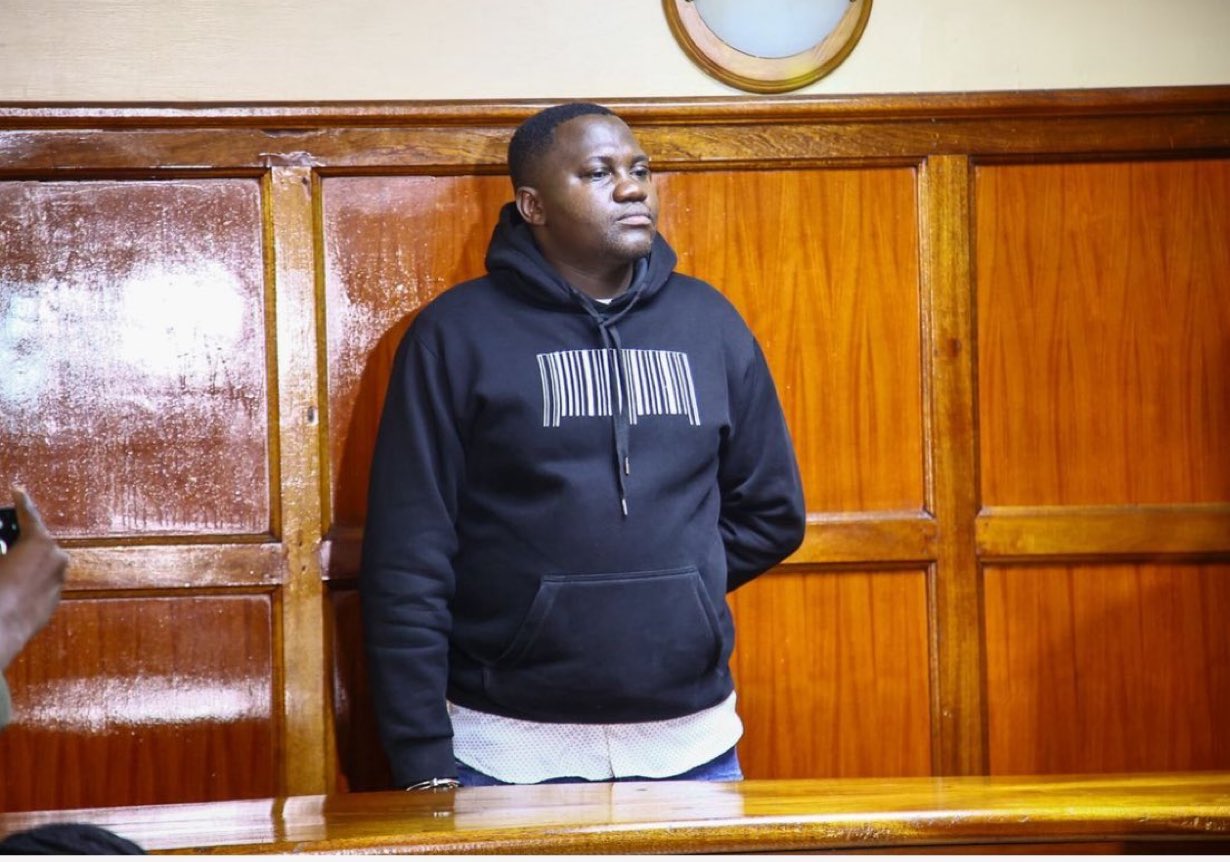
Constable Mukhwana’s statement has opened a floodgate of questions. But Lawyer Danstan Omari’s sharp rebuttal has shown just how complicated and politically sensitive the case has become. [Photo: Courtesy]
Lawyer Questions the Truth in Constable Mukhwana’s Statement
On Tuesday, June 17, Lawyer Danstan Omari publicly challenged the authenticity of Constable Mukhwana’s statement regarding the death of blogger Albert Ojwang. Speaking during a morning radio interview, Omari warned that the statement should not be accepted as fact until it goes through rigorous legal testing.
“Mukhwana’s statement has not been subjected to cross-examination. That is why the country must be careful,” Omari said firmly. “Its truth will only come out when tested in court.”
According to Omari, any witness statement—especially one as sensational and serious as Mukhwana’s—must be examined under strict legal processes. He noted that IPOA may collect multiple statements from various individuals, but their real value lies in corroboration and court evaluation.
“Some people give statements based on instruction, others based on hearsay. The quality and credibility of a statement are only proven when it stands up to cross-examination,” Omari explained.
Omari represents one of the key suspects, OCS Samson Talaam, in court. He has also raised concerns that the investigation into Ojwang’s death is already taking a dangerous and unlawful turn.
Legal Process Must Be Followed to Avoid Cover-Up
Omari took the opportunity to remind the public and investigative authorities of the legal steps required when a suspect dies in police custody. Citing Sections 385 and 386 of Kenya’s Criminal Procedure Code (Cap 75), he explained that an inquest must first be carried out.
“When someone dies in a police cell, the law demands an inquest. The first complainant comes forward, and others who were present give evidence. Only then can we determine who, if anyone, is to be charged,” he stated.
According to the Criminal Procedure Code, the process is clear:
- An inquest is opened to investigate the death.
- Witnesses testify under oath.
- The magistrate makes a finding based on all available evidence.
- The inquest file is then submitted to the Director of Public Prosecutions (DPP).
- The DPP decides if criminal charges should follow.
Omari accused investigators of bypassing this legal process in Ojwang’s case, arguing that this could lead to a false narrative and a cover-up of the real killers.
“What we are seeing is the reverse of the law,” he said. “When this happens, it becomes very easy for the truth to be buried and scapegoats to be used.”
He emphasized that only a proper inquest can allow full public participation, giving a chance for any witness with useful information to come forward.
Omari: Statement Alone Cannot Nail Suspects Without Evidence
Omari also stressed that Mukhwana’s statement, no matter how detailed or shocking, cannot on its own lead to convictions. He warned against trial by media or emotion, saying only the courts can determine guilt.
“The quality of that statement improves only when it is corroborated. If others who were present have a different account, then it becomes just a story—not evidence,” he explained.
In the Monday court session at Milimani, where Omari defended Talaam, tensions were high. Civil society groups, media, and members of the public have shown growing concern over police brutality and extrajudicial killings. Ojwang, a vocal government critic and influencer on social media platform X, had long reported harassment by security agents.
His death in police custody triggered a national uproar, with fingers pointed directly at the highest levels of the police force. But Omari has urged Kenyans not to jump to conclusions based on one statement.
“We want justice for Ojwang, but justice must be based on law—not emotions, not statements, not media drama,” he concluded.
Kenya Insights allows guest blogging, if you want to be published on Kenya’s most authoritative and accurate blog, have an expose, news TIPS, story angles, human interest stories, drop us an email on [email protected] or via Telegram
-

 Americas6 days ago
Americas6 days agoEpstein Files: Bill Clinton and George Bush Accused Of Raping A Boy In A Yacht Of ‘Ritualistic Sacrifice’
-

 Business1 week ago
Business1 week agoCooking Fuel Firm Koko Collapses After Govt Blocks Sh23bn Carbon Deal
-

 Business6 days ago
Business6 days agoABSA BANK IN CRISIS: How Internal Rot and Client Betrayals Have Exposed Kenya’s Banking Giant
-

 Business3 days ago
Business3 days agoKRA Can Now Tax Unexplained Bank Deposits
-

 Investigations1 week ago
Investigations1 week agoPaul Ndung’u Sues SportPesa for Sh348 Million in UK Court, Accuses Safaricom Boss of Sh2.3 Billion Conspiracy
-

 Investigations2 days ago
Investigations2 days agoEpstein Files: Sultan bin Sulayem Bragged on His Closeness to President Uhuru Then His Firm DP World Controversially Won Port Construction in Kenya, Tanzania
-
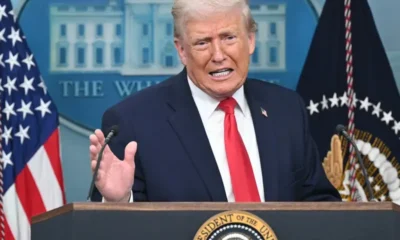
 Americas6 days ago
Americas6 days agoEpstein Files: Trump Accused of Auctioning Underage Girls, Measuring Genitals and Murder
-

 News4 days ago
News4 days agoAUDIT EXPOSES INEQUALITY IN STAREHE SCHOOLS: PARENTS BLED DRY AS FEES HIT Sh300,000 AGAINST Sh67,244 CAP





